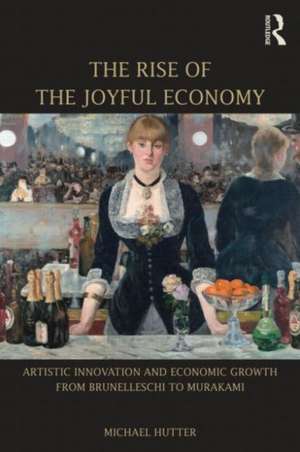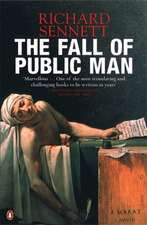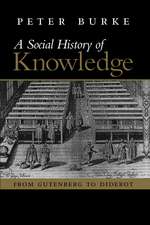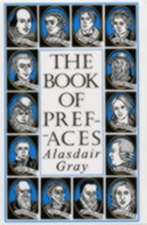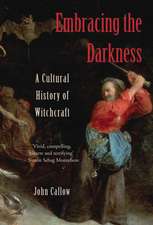The Rise of the Joyful Economy: Artistic invention and economic growth from Brunelleschi to Murakami
Autor Michael Hutteren Limba Engleză Paperback – 31 mar 2015
This book investigates how artistic ideas are translated into successful commercial production, and how economic growth impacts artistic invention. It examines cases of successful innovation in the creative industries ranging from the Italian Renaissance to the present. The book suggests a framework where social players move in diverse worlds of value, which leads to a stream of controversies and manias that result in the establishment of new joy products. Studies include the effect of linear perspective, as pioneered by Filippo Brunelleschi, the discovery of taste as an argument for consumption, the serial production of Pop Art and the self-commercialization of contemporary works by artists like Takashi Murakami .
This theoretical and empirical study brings together the fields of cultural economics, economic sociology, management studies and cultural history. In doing so, it offers a fascinating study of how creativity has shaped and fuelled commerce.
| Toate formatele și edițiile | Preț | Express |
|---|---|---|
| Paperback (1) | 336.35 lei 6-8 săpt. | |
| Taylor & Francis – 31 mar 2015 | 336.35 lei 6-8 săpt. | |
| Hardback (1) | 765.01 lei 6-8 săpt. | |
| Taylor & Francis – 31 mar 2015 | 765.01 lei 6-8 săpt. |
Preț: 336.35 lei
Preț vechi: 400.86 lei
-16% Nou
Puncte Express: 505
Preț estimativ în valută:
64.38€ • 69.96$ • 54.11£
64.38€ • 69.96$ • 54.11£
Carte tipărită la comandă
Livrare economică 21 aprilie-05 mai
Preluare comenzi: 021 569.72.76
Specificații
ISBN-13: 9781138795297
ISBN-10: 1138795291
Pagini: 238
Ilustrații: 66 black & white illustrations, 9 colour illustrations, 66 black & white halftones, 9 colour illustrations
Dimensiuni: 156 x 234 x 26 mm
Greutate: 0.36 kg
Ediția:1
Editura: Taylor & Francis
Colecția Routledge
Locul publicării:Oxford, United Kingdom
ISBN-10: 1138795291
Pagini: 238
Ilustrații: 66 black & white illustrations, 9 colour illustrations, 66 black & white halftones, 9 colour illustrations
Dimensiuni: 156 x 234 x 26 mm
Greutate: 0.36 kg
Ediția:1
Editura: Taylor & Francis
Colecția Routledge
Locul publicării:Oxford, United Kingdom
Public țintă
Postgraduate and UndergraduateCuprins
1. A framework of creative irritation Part I. Economic responses to artistic invention 2. Creating markets for experience goods: artistic emergence and commercial spread of Linear Perspective, 1425–1680 3. Painted conversations: shaping taste for England’s consumer revolution, 1730–1760 4. Joy in repetition. Translating artworks into experience goods, 1955–1965 Part II. Artistic responses to economic change 5. Silent narratives of assertion, 1430–1600 6. Entertaining the Modern Self, 1720–1890 7. Intentional entanglements, 1960–2010 8. More moves, as the joyful economy continues to rise
Notă biografică
Michael Hutter is Professor of Economics and Sociology at Technical University Berlin and Director of Research at WZB Berlin Social Science Center, Germany.
Recenzii
The Rise of the Joyful Economy by the German cultural economist-partially-turned-sociologist Michael Hutter is about as far as you can get from a standard monograph in cultural or economic sociology. Drawing on insights from art history, cultural economics and economic sociology among others, the book is hard to categorize. The claims which the book makes are as sweeping as the evidence provided for them is a-typical: the analysis of works of art, selected from a 600-year timespan. But for readers who are not daunted by these deviations, The Rise of the Joyful Economy is a highly original analysis of artistic and economic transformations since the Middle Ages. Moreover, the book sheds news lights on contemporary debates in economic and cultural sociology. [...] it enriches our thinking of the ways in which societal spheres have an impact on each other. The main contribution, however, and it is on the verge of cliche to write this, is that the book supports one of its own key hypotheses: the irritation hypothesis. Written by a scholar who was trained in mathematics and economics, and who later shifted his career in the direction of sociology, turning himself into an art historian in the meantime, The Rise of the Joyful Economy proves that novel, surprising insights are to be gained at the interface of different disciplinary perspectives.
— Olav Velthuis, European Journal of Sociology, 57, 3 (2016), pp. 518–523
— Olav Velthuis, European Journal of Sociology, 57, 3 (2016), pp. 518–523
Descriere
This book argues for the increasing importance of the arts as a major resource in fuelling growth through the experiential dimension of today’s economy. As we move from the knowledge economy to a new stage called the joyful economy, consumers shift their spending from physical objects and technical know-how to experiences of joy and disappointment.This book investigates how artistic ideas are translated into successful commercial production, and how economic growth impacts artistic invention.
